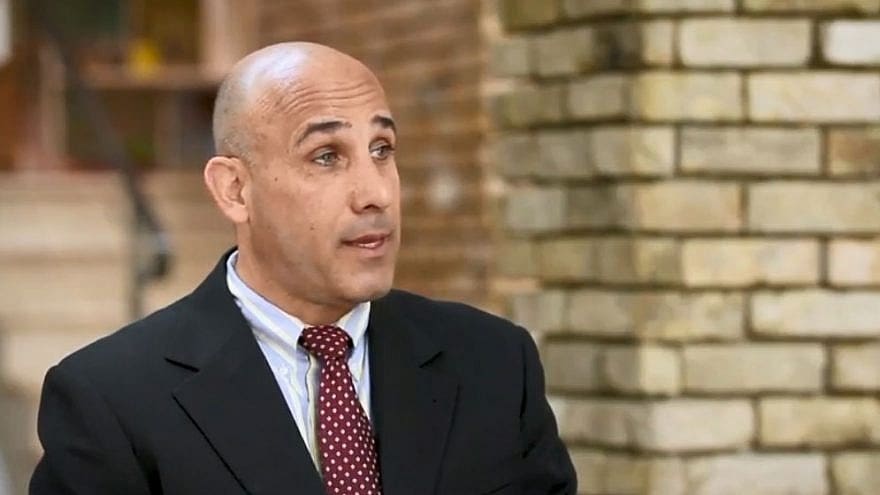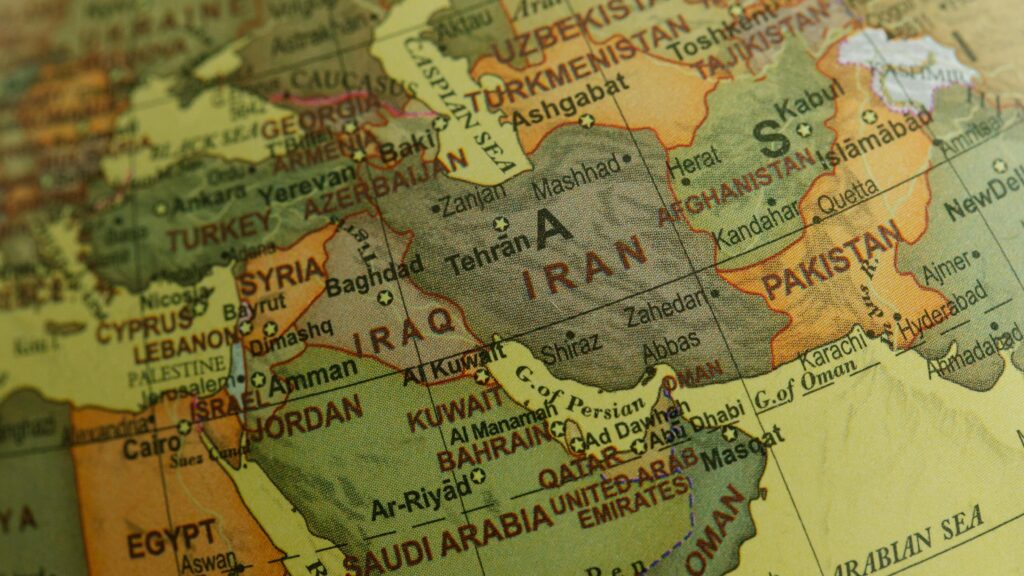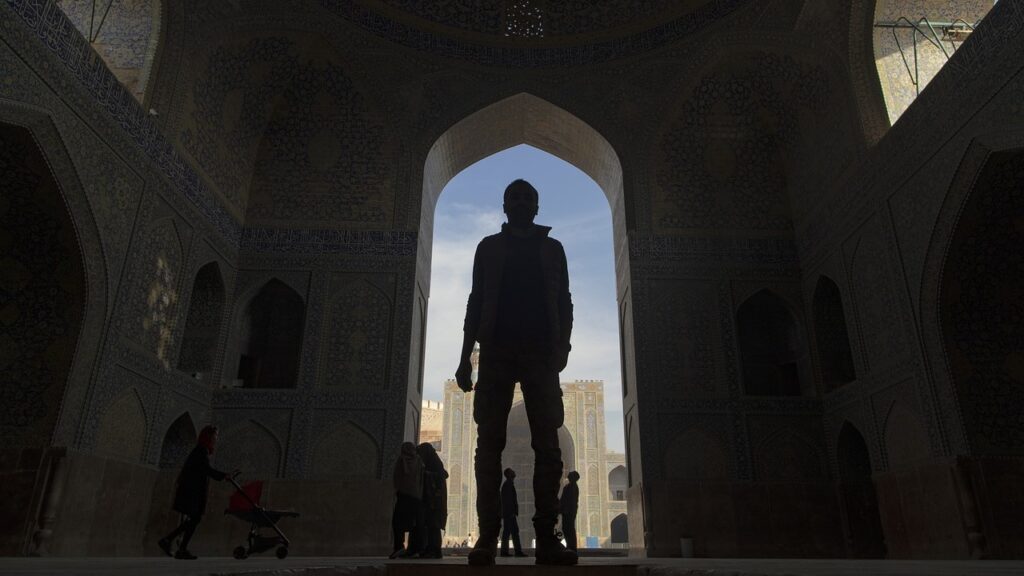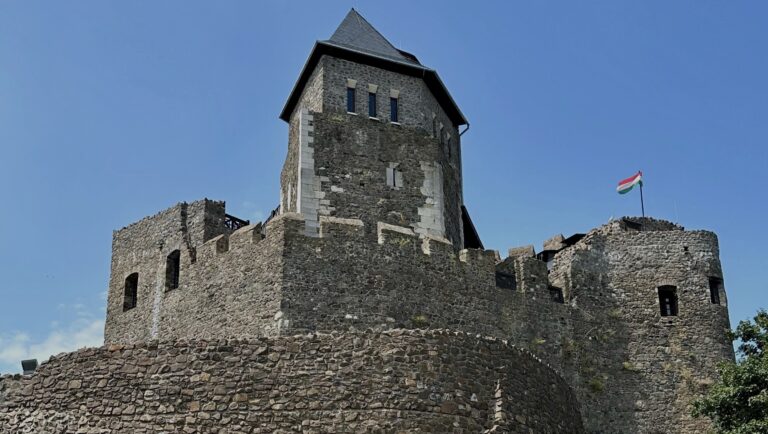In 2021, the Danube Institute launched a podcast series titled Reflections from Budapest, in which we have had several thought-provoking discussions about religious conflict, religious violence, and reconciliation. At the end of 2023, after Hamas’s brutal massacre on 7 October in Israel, we launched a new series focusing on the Middle East and the ramifications of the Israel–Hamas war.
On 26 January 2024, we had the honour of having a two-part discussion with Brigadier General (res.) Amir Avivi, the founder and chairman of the Israeli Defense and Security Forum (IDSF). During his service General Avivi held a series of senior roles in the IDF: he was the deputy division commander of the Gaza Strip, Deputy Comptroller of the Security Forces, Director of the Office of the Chief of Staff, Commander of the Sagi Division, Commander of Battalion 605 and Commander of the School of Combat Engineering.
Israel Has to Outline What is Needed to Secure the Country For Future Generations
General Avivi comes from a family that has been living in Jerusalem for fifteen generations. His father, Pinhas Avivi, was a former Israeli Senior Deputy Director General of the Ministry of Foreign Affairs and served as Israel’s ambassador in Colombia, Chile and Turkey. General Avivi spent most of his childhood abroad due to his father’s diplomatic career. Soon after graduating from a British high school in Rome in 1987, he returned to Israel and joined the IDF. He started his 30-year military career, going from being a lone soldier to the rank of general and comptroller of the defence system. Coming from a family with a strong connection to David Ben-Gurion’s party, Mapai, General Avivi underscored how influential Ben-Gurion’s strong Zionist leadership was in his life. He explained that Ben-Gurion, as the first prime minister of Israel, understood the importance of Israel defending itself by itself and putting the interest of the state of Israel as a top priority.
Reacting to the question about whether Ben Gurion’s firm stance on not giving up land in 1967 was the right decision and whether withdrawing to the 1948 borders and reaching an agreement with the Palestinians and the Arab world would benefit Israel more, General Avivi pointed out that Israel cannot start discussing solutions until they agree on the same problem. He emphasized that the real problem is not negotiating on withdrawing from some settlements but rather that
Israel’s enemies want to ideologically eradicate the entire Jewish state,
as their popular slogan ‘from the river to the sea’ indicates. Therefore, General Avivi stressed that the most crucial issue for Israel is to outline what is needed to secure the country for generations to come, and only based on that can they start discussing a solution that adheres to the basic needs of Israel and the Jewish people.
The Bible is Israel’s History Book
General Avivi has a unique reputation as a commander due to his exceptional vision and creativity, seeking solutions for problems that the IDF was tasked with managing. Even as a young officer, General Avivi recognized the need for visionary thinking, especially concerning long-term strategic planning for Israel’s defence. He explained that the Israeli army is reluctant to set a clear national security vision, often deferring to political consideration; therefore, an organization such as the IDSF was needed to fill this void and provide the necessary measures for securing Israel in the long term.
General Avivi recounted two pivotal realizations from his military career that led to the founding of the IDSF. During the 2002 Operation Defensive Shield in Judea and Samaria, General Avivi was a battalion commander of 800 soldiers who fought for ten months against suicide bombers who tried to carry out terror attacks during the second intifada. After ten months, they were told they had three weeks to prepare to go back to the operation for another ten months. During these three weeks, General Avivi realized that half of his soldiers had never been to Jerusalem; therefore, he brought his team to the city for a week to visit the most important and holiest places, so they’d know what they were fighting for. General Avivi was impacted by how Israeli secular education distanced itself from Zionist values and patriotism, which, in his view, posed a huge danger to Israeli society. General Avivi also highlighted that in Israel, there is a connection between history, heritage and religion, and the Bible not only holds a religious significance but it’s also Israel’s history book. He added that, therefore, Judaism could not be separated from nationalism and patriotism in the Israeli army. His other realisation came after witnessing the chaotic and devastating decision-making process during the disengagement of Israeli troops from Gaza, which he believed posed a significant danger to Israel from the beginning. After retiring, General Avivi felt the need to found IDSF in the Israeli society to promote Israel’s long-term security.
7 October Was Possible Because of Two Terrible Decisions: The Oslo Accords and 2005 Withdrawal
General Avivi highlighted that Hamas’s brutal attack on 7 October in Israel was possible because of two terrible decisions: the Oslo Accords and the 2005 disengagement of Israeli troops from Gaza. He explained that the Oslo Accords were implemented in 1994, which led to the withdrawal of Israeli troops from the major cities of Gaza and the transfer of weapons and control to the Palestinian Authority. This decision resulted in Gaza, which was not previously considered a significant military issue, becoming a top military priority for Israel. Two years after the Oslo Accords, instead of peace, a huge attack was carried out against Israel by the Palestinians, who were given weapons by Israel. The Israeli deputy division commander was killed in this attack, which is why General Avivi was soon called in by Yoav Gallant—who is currently the Israeli Minister of Defence—to become a chief combat engineer of the Gaza Division. As he started his serving in Gaza, they started seeing terror tunnels for the first time and in under two years of his time in the division, he dealt with more than 30 tunnels. General Avivi added that during this time, Gaza started digging explosive tunnels, shooting rockets and mortars and used anti-tank missiles against Israel. With these developments, General Avivi emphasized that the catastrophic 2005 disengagement of Israeli troops from Gaza resulted in Hamas taking over and building up terror capabilities throughout Gaza, which is why today, after what happened on 7 October, Israel has to reverse everything: destroy Hamas, take back control of the Egyptian border and gain back full freedom of operation of the Gaza Strip as it has in Judea and Samaria. Reacting to the question of whether the Israeli goal of destroying Hamas is compatible with the rescue of the hostages, General Avivi explained that these goals are connected as, in his view, ‘only military pressure that can bring Hamas to its knees begging for a deal’.
On the IDSF website, the organization is defined as ‘a Zionist, security-based movement, whose aim is to position Israel’s security as the top national priority, in a manner which ensures the sovereignty of the Jewish people in their homeland for generations to come.’General Avivi highlighted that ‘national security is first and foremost about Zionist national values’, which is why, as he phrased, the most important factor for the Israeli soldiers who are fighting against terrorism in Gaza and why the Jewish state will win this war is because ‘they’re united in the Zionist spirit and the goal to build a national home for the Jewish people in the land of Israel which is a goal that unites the all of Israel.’ General Avivi also highlighted that, ‘the Jewish nation was expelled from our land between two to four times, spent two thousand years in the diaspora persecuted, in the Holocaust six million Jews were slaughtered, put into gas chambers, therefore the biggest goal of Israel is to make sure this won’t happen again.’ General Avivi added that if Israel is a strong and prosperous country, even Arabic nations—as seen in the Abraham Accords—will want to have a good relationship with the Jewish state.
According to General Avivi, the 7 October massacre was an Iranian attempt—with the mobilisation of Hamas and Hezbollah to keep them safe—to stop the build-up of an American-Israeli-Sunni alliance that would counter the Chinese-Russian-Iranian economic and military force which emerged from the desire to overcome the sanctions that have been posed on them. In his view, it took a long time for the US to realize the need to promote the peace agreement between Israel and Saudi Arabia, which would build a huge new alliance of countries like Indonesia, Malaysia, Pakistan, Oman and the signed Arab countries of the Abraham Accords which could block the emerging Chinese-Russian-Iranian front. General Avivi highlighted that this Iranian attempt was a result of their strategy of using proxies to fight for them instead of fighting directly.
‘Israel Can and Will Win Decisively’
Reacting to the question of whether 7 October was a bigger intelligence failure than the 1973 Yom Kippur War, General Avivi highlighted ‘the record was broken, and 7 October was even more devastating failure than the outbreak of Yom Kippur war in terms of intelligence, and the readiness of the units on the border, and will take decades to investigate.’ On a positive note, General Avivi expressed that
7 October served as a wake-up call for Israeli society,
resulting in the largest mobilization of the Israeli army in 75 years. After 7 October, a divided Israel came together in a show of unity. General Avivi highlighted that the day after this war, Israeli society will be completely changed as the hundreds of thousands of young soldiers from various backgrounds who are fighting now together fight for Israel’s mission, not for politics. He added that this generation will shape the future of Israel, and they won’t allow any divisions.
General Avivi recalled that the IDSF presented a national security assessment two years ago to the government, which raised attention to the fact that a war is imminent and that the army and society need to be prepared. The assessment highlighted two possible scenarios: either a war like the six-day war or a Yom Kippur war will happen meaning either Israel attacks first, or Israel is attacked by a complete surprise. The latter happened, and as General Avivi phrased, ‘Israel found itself in the very situation that we’ve been so afraid of’. However, General Avivi raised attention to the fact that Israel can and will win decisively this war and the ‘bigger the win, the greater the new golden age in the day after will be in which Israel will be a strong, united country that projects power, has peace agreements, has a flourishing economy and international relations and a safe country where Jews can immigrate from other countries as anti-Semitism will only grow around the world.’
To conclude, General Avivi highlighted that the Israel-Hamas war is not a local but a global war between the radicalism of Islam and the West and Western values. He explained that the reason why it’s crucial that the West stand behind Israel in this war is that if the Jewish state won’t win, radical Islam will come to the West. General Avivi expressed his gratitude for Hungary’s steadfast support of Israel in the European Union and other international institutions, noting that ‘it’s a friendship that Israel can trust in’.
You can listen to the first part of the Reflections from Budapest podcast series episode with Brigadier General (res.) Amir Avivi here, and to the second part here.








